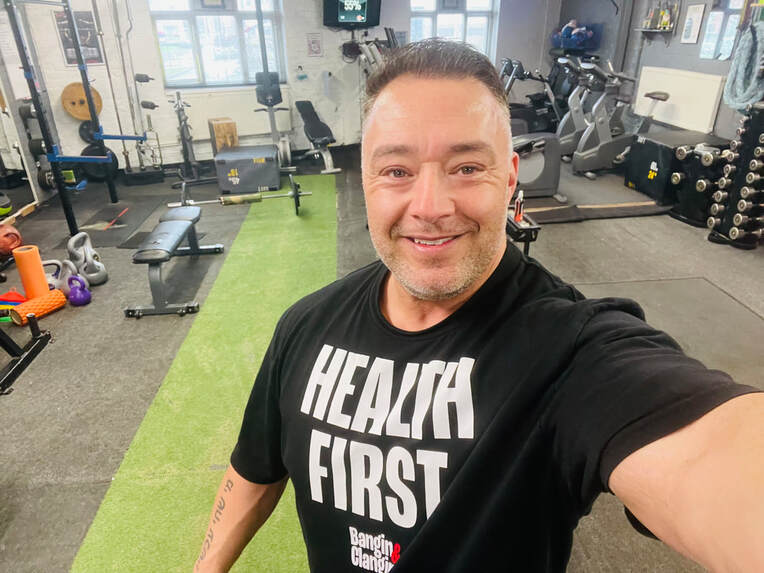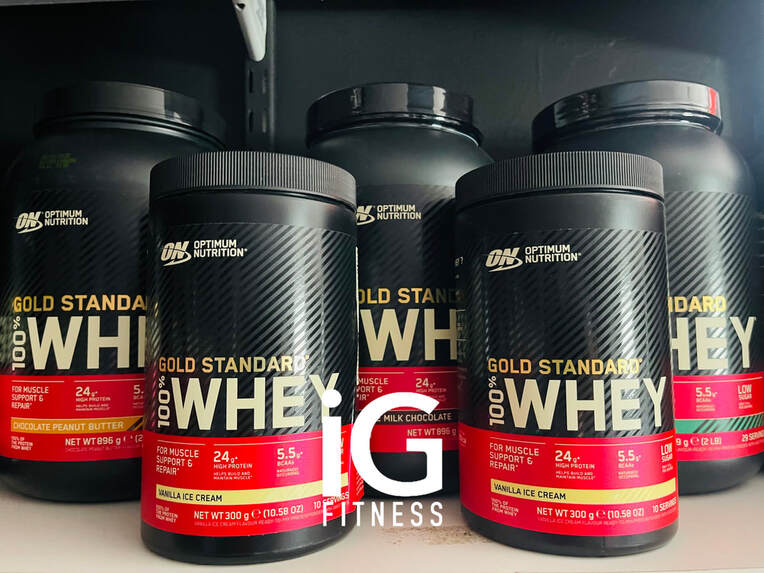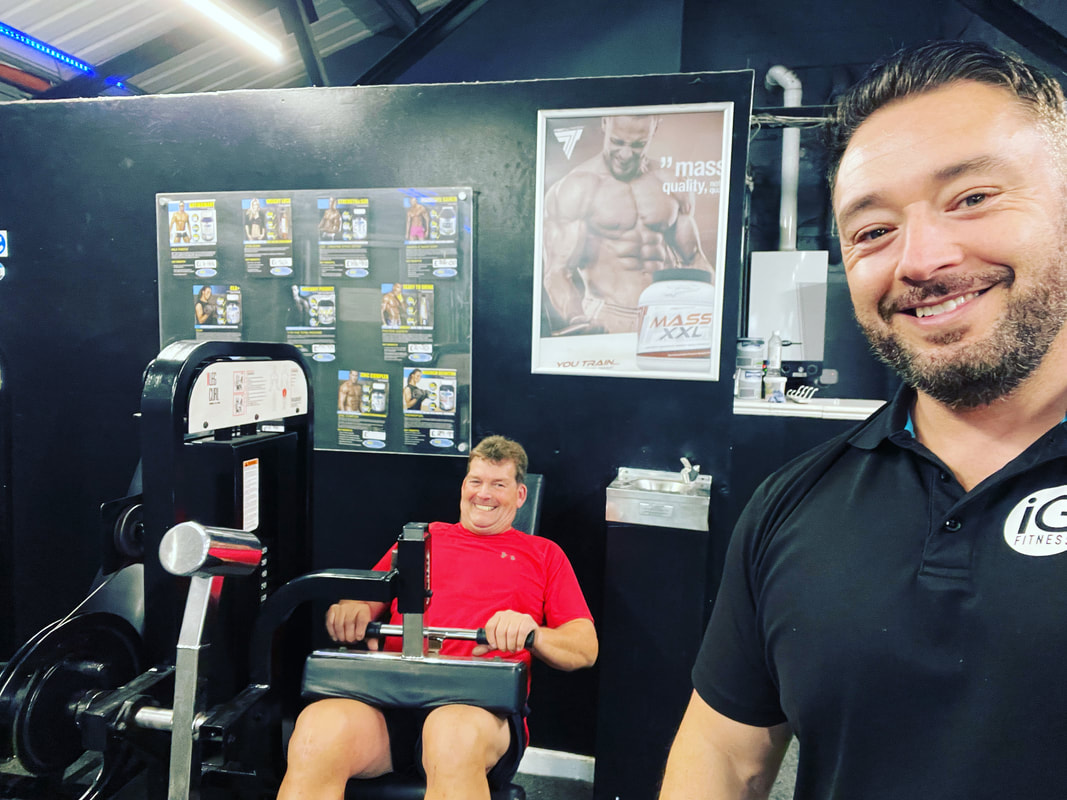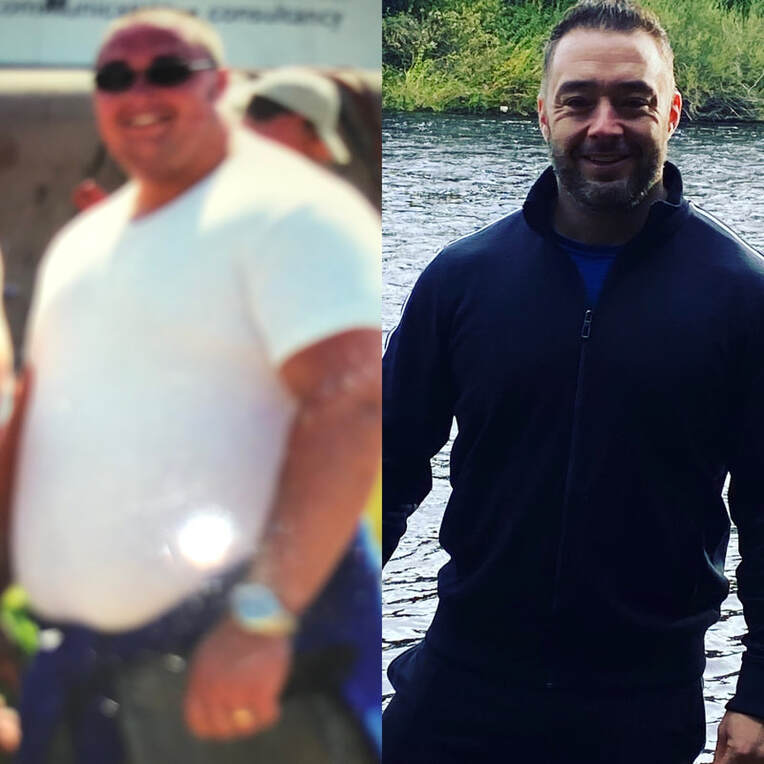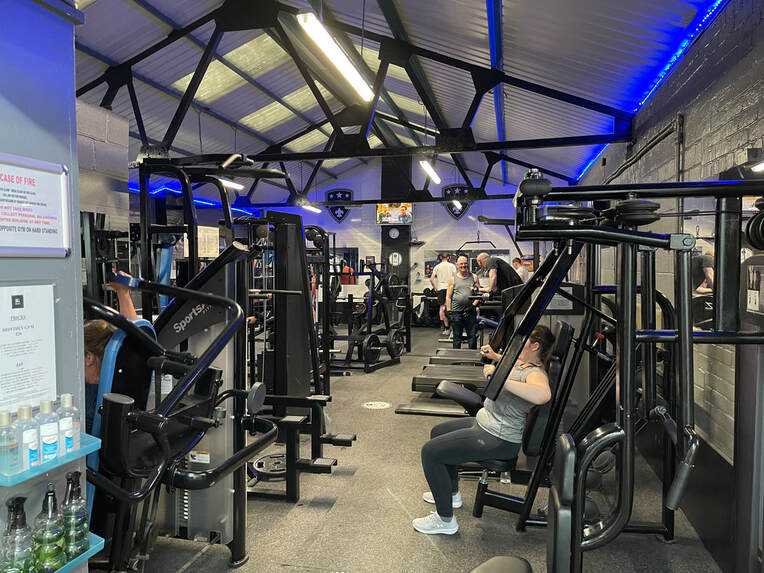|
In the fast-paced world of entrepreneurship, where long hours and relentless dedication are often worn as badges of honor, the crucial aspect of self-care frequently takes a backseat. Yet, embracing self-care is not just a luxury — it's a fundamental necessity that fuels both personal well-being and business success. In this article, we'll explore actionable tips that can help entrepreneurs integrate self-care into their busy schedules, ensuring they remain at their best, both as individuals and as business leaders.
A Pause Can RefreshStepping away from the relentless grind is not a sign of weakness but a strategic move toward greater efficiency. Allowing yourself moments of respite amidst the hustle can spark creativity, renew focus, and prevent the onset of burnout. A short walk, a moment of silence, or a change of scenery can drastically shift your perspective, offering fresh insights into challenging tasks. This intentional pause is a testament to understanding the rhythm of your productivity, not just pushing through the hours. Cultivate GrowthYour journey as an entrepreneur mirrors a never-ending quest for knowledge and self-improvement. Dedicating time to expand your horizons through learning not only enriches your expertise but also fuels your inner drive. Engaging in diverse educational experiences, be it through literature, seminars, or creative endeavors, equips you with new tools and ideas to innovate and lead. This commitment to growth transcends professional benefits, enhancing your life's quality and breadth of understanding. Strengthen Your BondsThe essence of your entrepreneurial journey is deeply rooted in the relationships you cultivate. Allocating time for meaningful interactions with loved ones and peers provides a grounding perspective outside the vacuum of work. These connections offer emotional support, inspire creativity, and foster a sense of belonging. Beyond the immediate circle, expanding your network introduces you to different viewpoints and opportunities, enriching your personal and professional life. Balance Your WorldsStriking a harmonious balance between professional aspirations and personal time is the cornerstone of a sustainable career. Implementing boundaries to protect your private time encourages a culture of respect for your well-being among colleagues and clients. Embracing flexibility in your work environment, such as remote work or adjusted hours, can significantly alleviate stress. This equilibrium enables you to pursue passions outside of work, contributing to a fuller, more satisfying life. Prioritize FitnessDevoting time to physical activity is crucial for maintaining the energy and resilience needed to thrive as an entrepreneur. Regular exercise not only enhances physical health but also boosts mental clarity, reduces stress, and improves overall productivity. Finding the right workout routine can be challenging amidst a busy schedule, but personalized guidance can make a significant difference. If you need help structuring your workouts, consider working with Ian Glass Fitness to ensure your fitness plan is both effective and sustainable. Embrace MindfulnessIncorporating mindfulness into your daily life is a transformative strategy for managing stress and enhancing overall well-being. This practice, whether through meditation, yoga, or simply conscious breathing, anchors you in the present, allowing a break from the constant forward motion of entrepreneurship. Regular mindfulness practice cultivates a sense of inner peace and clarity, improving decision-making and fostering a grounded, balanced approach to challenges. Cherish Your RestThe foundation of your health and cognitive performance is deeply tied to the quality of your sleep. Prioritizing a restful night's sleep is crucial for mental clarity, emotional resilience, and physical vitality. Establishing a soothing pre-sleep routine and creating an environment conducive to rest ensures that you wake up refreshed and ready to tackle the demands of the day. This commitment to sleep is a profound acknowledgment of its role in your success and well-being. By Cheryl Conklin - wellnesscentral.info/
0 Comments
At IanGlassFitness, we believe that achieving true health & fitness transcends the physical; it requires nurturing your mental, emotional, and psychological wellbeing. A vital aspect of this holistic approach to fitness is recognizing and addressing self-destructive habits that can undermine your health and fitness goals. Understanding these behaviors is the first step towards cultivating a more supportive lifestyle that aligns with your aspirations. Self-Destructive Habits: What Are They? Self-destructive habits are patterns of behavior that negatively impact your physical or mental health. They often serve as a coping mechanism for stress, anxiety, or other emotional challenges, offering temporary relief but ultimately leading to more significant issues. In the context of fitness, these can range from inconsistent training, neglecting rest days, to unhealthy dietary practices. Recognizing the Signs Identifying self-destructive habits requires introspection and honesty. Common signs include: **Ignoring Physical Limits**: Pushing your body consistently beyond its limits, ignoring pain or discomfort, can lead to injuries and setbacks. **Neglecting Nutrition**: Resorting to extreme diets, skipping meals, or believing there is a magic supplement instead of real earth foods undermines your body's ability to perform and recover. **Skipping Rest**: Undervaluing rest days and adequate sleep can impede recovery, leading to burnout and diminished performance. **Comparing and Despairing**: Constant comparison with others' progress can lead to discouragement, affecting your motivation and self-esteem. **All-or-Nothing Thinking**: Viewing fitness as a series of extremes (e.g., intense daily workouts or none at all) can prevent a balanced, sustainable approach to wellness. Strategies for Overcoming Self-Destructive Habits **1. Self-Reflection and Awareness**: Regularly check in with yourself. Acknowledge your feelings and behaviors without judgment. Identifying the root causes of your actions can illuminate why you're drawn to certain habits. **2. Set Realistic Goals**: Focus on setting achievable, measurable goals. Break your fitness journey into smaller, manageable steps that gradually lead to your ultimate aim. **3. Seek Support**: Don't hesitate to reach out for professional help if habits stem from deeper emotional issues. Joining a supportive community, whether online or in-person, can also provide motivation and encouragement. **4. Embrace Balance**: Incorporate a variety of activities into your routine. Balancing different types of exercise can prevent boredom and reduce the risk of injury, making your fitness journey more enjoyable and sustainable. **5. Prioritize Rest and Recovery**: Recognize that rest is not a sign of weakness but a critical component of progress. Ensure you’re getting enough sleep and incorporating rest days into your routine. The Road Ahead Transforming self-destructive habits into positive behaviors won't happen overnight. It's a journey that requires patience, understanding, and persistence. At IanGlassFitness, we're committed to supporting you every step of the way, providing the tools and encouragement you need to foster a healthier relationship with fitness—and, most importantly, with yourself. Remember, recognizing these habits is a sign of strength, not weakness. It's the first step towards embracing a more mindful, balanced approach to your health and fitness goals. Together, let's break free from the chains of self-destructive behaviors and embark on a path to true wellness. In the world of fitness and nutrition, whey protein has emerged as a popular dietary supplement. Derived from milk during the cheese-making process, whey protein is a complete protein containing all nine essential amino acids that our body needs. With its numerous health benefits, it's no wonder why this protein powerhouse has gained such popularity among athletes, fitness enthusiasts, and even the general population. In this blog post, we will uncover the top 3 benefits of whey protein and explore how it can enhance your overall well-being. 1. Muscle Growth and Recovery: One of the key benefits of whey protein lies in its ability to promote muscle growth and aid in post-workout recovery. Due to its rich amino acid profile and rapid digestion, whey protein reaches the muscles quickly after ingestion, providing a readily available source of amino acids for muscle protein synthesis. This is particularly beneficial for individuals engaged in resistance training or seeking to build lean muscle mass. Studies have shown that consuming whey protein post-workout can enhance muscle protein synthesis, optimize recovery, and support muscle repair. 2. Weight Management and Appetite Control: Whey protein possesses unique properties that make it an excellent tool for weight management. Firstly, as a high-quality protein, it helps to increase satiety and reduce overall calorie intake by prolonging feelings of fullness. This can prevent overeating and aid in weight loss or maintenance efforts. Additionally, whey protein has a high thermic effect, meaning that the body burns more calories to digest and absorb it compared to other macronutrients. Incorporating whey protein into a balanced diet can help promote a healthy body composition and support long-term weight management goals. 3. Nutritional Support and Immune Function: Beyond its impact on muscle growth and weight management, whey protein also plays a crucial role in supporting overall health and immune function. Whey protein contains a range of bioactive peptides, such as lactoferrin, immunoglobulins, and glutathione precursors, which have been shown to have immune-enhancing properties. These compounds help strengthen the immune system, making it more resilient to external threats. Additionally, whey protein is an excellent source of key vitamins and minerals, including calcium and B-vitamins, contributing to overall nutrition and promoting optimal health. Conclusion: Whey protein has undoubtedly earned its well-deserved place in the realm of nutritional supplements. From augmenting muscle growth and aiding in recovery to supporting weight management and immune function, the benefits of whey protein are wide-ranging and significant. However, it's important to note that like any supplement, proper usage and moderation are essential. Individual needs may vary, so consulting with a healthcare professional or registered dietitian is advisable to determine the right dosage and timing for incorporating whey protein into your diet. As you embark on your health and fitness journey, consider adding whey protein as a tool to optimize your overall well-being. iG PS. Shop locally at our fully stocked supplement store www.theproteinstop.com😀 Unleash Your Full Potential with ManCamp's Group Training Program for Men
In today's fast-paced world, it is becoming increasingly important for men to prioritize their physical and mental well-being. One effective way to achieve this is through group training programs specifically designed for men. ManCamp's group training program encompasses various benefits that can empower men to unleash their full potential, boost their fitness levels, and foster a strong sense of camaraderie. In this blog post, we will delve into the noteworthy advantages of group training for men, highlighting how ManCamp can help you transform into the best version of yourself. 1. Motivation and Accountability: One of the primary benefits of group training is the built-in support system that propels participants towards their fitness goals. ManCamp's program encourages the formation of a supportive community where individuals motivate and inspire each other to push boundaries and achieve monumental results. The camaraderie and shared experiences create a sense of accountability among participants, helping them stay motivated and committed to their fitness journey. 2. Professional Guidance: At ManCamp, all group training sessions are led by expert trainer/founder Ian who specialize in men's health and fitness both physically and mentally. Having a wealth of knowledge and expertise, ensuring that participants receive top-notch guidance and instruction to optimize their workout routines. Ian not only creates dynamic and challenging workouts but also provide insights into proper form and technique, reducing the risk of injury and maximizing results. 3. Varied and Engaging Workouts: Group training programs are designed to keep participants engaged and excited about their workouts. Through a combination of cardiovascular exercises, strength training, and functional movements, ManCamp's program offers a diverse range of activities that cater to different fitness levels and preferences. The variety in workouts not only prevents boredom but also challenges participants to continuously improve their performance, resulting in enhanced overall fitness. 4. Healthy Competition: Healthy competition can provide an additional layer of motivation and drive for men participating in group training. ManCamp fosters a supportive competitive environment where participants can push themselves further, witnessing their progress and celebrating achievements alongside their fellow attendees. This friendly rivalry encourages participants to strive for greatness and excel in their fitness goals. 5. Mental Well-being: Physical exercise has been proven to have a significant positive impact on mental health and well-being. Engaging in group training not only improves physical fitness but also helps reduce stress, boost mood, and increase overall happiness. The camaraderie, support, and shared experiences during ManCamp's group training sessions contribute to building strong mental resilience and a positive mindset. ManCamp's group training program for men offers a plethora of advantages, ranging from motivation and accountability to professional guidance and engaging workouts. By participating in ManCamp, men can unleash their full potential, elevating their strength, endurance, and overall fitness levels. The inclusive and supportive community created within the group training environment promotes camaraderie, healthy competition, and mental well-being. If you are looking to transform into the best version of yourself physically and mentally, ManCamp's group training program is the ideal choice for you. Don't wait—join the ManCamp community today and embark on a rewarding journey towards a healthier, stronger, and happier life. www.ianglassfitness.com/mancamp Make the Most of Your Workout Time Starting Today
Are you tired of working out every day and seeing few, if any, results? If so, today’s tips are for you. Here, we’ll take a look at a few ways that you can make the most of your time at the gym so that you can maximize your physical fitness endeavour's. Work with a personal trainer. Working with a personal trainer can help you discover what you’re doing right and what you’re doing wrong. The right personal trainer can also share with you industry secrets that you might not be able to uncover by browsing the internet alone. Ian Glass Fitness offers personal training and has been helping people in the Hartlepool area for the last 20+ years. If you can commit to twice per week and are ready to make real progress, you’re the ideal candidate for personal training. Keep track of your records. Before you begin any type of diet or exercise routine, it’s crucial that you start with a baseline. Keep records, whether it’s a Word doc or spreadsheet, that allow you to see your gains and losses. Use spreadsheets so that you can access these from your phone, which is especially important when discussing your goals with your personal trainer. If you’re not sure how to use PDF’s, Adobe can help; click here for more info. Warm up properly. Warming up is a great way to prepare yourself both physically and mentally before you jump headfirst into a workout. To warm up, the NHS recommends walking, jogging, or doing squats. Don’t forget to cool down after your exercise to help your body return back to a resting state. Set specific and measurable goals. Setting goals is important in every aspect of life, and your workout routine is no different. Having goals gives you directions and helps you identify the steps you need to take to get to where you want to be. A specific and measurable goal is one that’s clearly stated with a purpose and intent. Use the right form. You can work out all day, every day, and not see results if you’re not using the right form. In addition to ensuring that your muscles experience the movement they need, having good form can also reduce injuries, which means you’ll miss the gym less often. Drink enough water. If you want to maintain your performance levels, drink up. Drinking enough water helps your body replenish the fluid you lose as you sweat – you will sweat whether you’re lifting weights or doing cardio. Avoid the temptation to ingest sugary sports drinks, as water is the ideal drink to rehydrate every cell in your body. Fuel your body. Your body needs fuel to get the most out of its activity. Make a point to eat a balance of carbohydrates and protein before you work out. Carbs give you energy, while protein helps repair your muscles, according to the YMCA. Allow time for rest and recovery. You have to give each muscle group a day or two off after an intense workout. The 8Fit blog explains that this is because, without rest, you won’t see strength gains. A good rule of thumb is to listen to your body. If you feel like you need a day to rest, take it. Your personal trainer can help you come up with an activity schedule that best suits your body type, fitness experience, and overall goals. To make the most of your workout, follow the advice above. From hiring a personal trainer to tracking your records, setting goals, and staying hydrated, today’s tips can help you see results so that you can live the life in the body you desire. If you’re looking for a personal trainer that will listen and help you refine and achieve your goals, contact Ian Glass. He’s been helping people transform their lives for the last two decades. Guest Post From Stephanie Haywood - mylifeboost.com Make no mistake about this when you see anybody that's been successful with transforming their body and life, it was not diets and workouts that did this
It was transforming the mindset and the habits set, it's the only way real lasting change happens Habits are an essential part of our daily lives. They are defined as a regular pattern of behaviour that is repeated over and over again, often without conscious thought. Habits can have both positive and negative effects on our lives, so it is important to be aware of the habits we have and how they influence our lives. You can imagine that when i was over 330lbs in poor health and life in crisis my habits were not serving me in a positive way. Habits can have a powerful influence on our behaviour. They provide us with a sense of structure and routine, which can make us feel safe and secure. Habits can also be beneficial as they make certain tasks easier and quicker to complete, such as brushing our teeth or taking a shower. This allows us to save time and energy for more important tasks. However, habits can also be bad for our health. For example, the habit of binge eating/comfort/sedating with food or smoking/drinking can be very detrimental to our health. In addition, bad habits can be hard to break, making it difficult to make positive changes in our lives. It is important to be aware of the habits we have and how they affect our lives. To cultivate positive habits, we should start by identifying our current habits and then assessing what we want to change. We can then set goals and create strategies to replace old habits with new ones. You have to be 100% truthful with yourself though when setting about changing your habits. One of the most important aspects of cultivating positive habits is consistency. To make a habit stick, we must be consistent in our efforts. This includes setting realistic goals and making sure we stick to the plan. We should also be mindful of the rewards we receive for completing our tasks. Rewards can be anything from a celebratory meal out to feeling a sense of accomplishment. Habits can also be formed through peer pressure. We often adopt the habits of our friends and family, which can be both good and bad. While it can be helpful to have people around us who have similar habits, it is important to remember that we are in control of our own lives and decisions. Know your circle of association, this was vital for me when I embarked on changing my life. Finally, it is important to remember that habits can take time to form. We must be patient and persistent in our efforts. We should also be mindful of our progress and celebrate successes, no matter how small. Habits play a significant role in our daily lives. They can provide us with structure and help us accomplish tasks more efficiently. However, it is important to be aware of our habits and how they affect our lives, both positively and negatively. By cultivating positive habits and being consistent in our efforts, we can make lasting changes and improve our lives. For anybody that's interested in habit coaching, you can find me at my Award Winning Hartlepool Fitness Business or at www.ianglassfitness.com The attack on red meat has been gathering speed over the last few years and when you see the attack on farming now you know why, it was just a stepping stone towards trying to get people to stop eating meat, something we have done since man has been alive.
This crazy net zero agenda from our own government and others like it and Agenda 2030 from the lunatics at the WEF (World Economic Forum) are pushing for all farming and meat eating to be banned, they want us all living on bugs and plants, sounds like we are going back to the dark ages. Well I for one wont stay silent or just come along quietly, the attack on farming and red meat is utter BS And yes the study on red meat and cancer was also BS, they used hot dogs and highly processed meats and they failed to mention other lifestyle factors. Anyway - the benefits of red meat 👇 Red meat is one of the most controversial and debated foods out there. It’s often blamed for causing heart problems, cancer, and other health issues, but is that really true? Recent research suggests that red meat may actually have a number of health benefits, and can be an important part of a balanced diet. One of the most important benefits of red meat is its high content of essential nutrients. Red meat is one of the best sources of protein, iron, zinc, and B vitamins. Protein is essential for muscle growth and repair, while iron helps to transport oxygen around the body and zinc is important for healthy immune function. B vitamins are important for energy production, and red meat is one of the best sources of vitamin B12. Red meat is also rich in healthy fats, including omega-3 fatty acids. These are important for reducing inflammation, which is associated with many chronic diseases. Omega-3 fatty acids have also been linked to improved cognitive function and mental health. Another benefit of red meat is its high content of conjugated linoleic acid (CLA). CLA is a type of fat that has been linked to improved body composition, increased muscle growth, and reduced body fat. It’s also been shown to reduce the risk of several types of cancer. Finally, red meat contains high levels of the mineral selenium. Selenium is essential for healthy thyroid function, which helps regulate metabolism and energy levels. It also has antioxidant properties, which can help protect against cell damage. Although some people are concerned about the health risks associated with red meat, in moderation it can be an important part of a healthy diet. It’s important to choose lean cuts of red meat, and to limit your consumption to 1-2 servings per week. This will help you get all the benefits of red meat without increasing your risk of health problems. In conclusion, red meat can be an important part of a balanced diet. It’s rich in essential nutrients, healthy fats, and important minerals. Eating red meat in moderation can provide a number of health benefits, such as improved muscle growth, reduced body fat, and improved cognitive function. If you’re looking for a healthy source of protein, iron, and other important nutrients, red meat is a great choice. 22 years ago when I bought my fitness biz I told everybody that ladies should be working out with weights if they wanted to be really healthy and look and feel amazing!
Pretty much all laughed as we were in the craze of the birth of commercial gyms with hundreds of cardio machines and ladies doing nothing but cardio (That was one of the main reasons I set the very first gym based Bootcamp up for ladies to give them access to working out with weights in a group environment to be able to support each other) But I told everybody - one day this will be different, I look around now and see how that's changed, I see women weight training just like the guys do, not surprising given the health benefits especially as they age, here's why 👇 Weight training is an important part of any fitness program, but it is especially beneficial for women as they age. Lifting weights can help you maintain muscle mass, improve your balance and stability, and even reduce your risk of injury. With these benefits in mind, let’s take a closer look at how weight training can benefit women as they age. First and foremost, weight training is an effective way to maintain muscle mass. As we age, our muscles tend to decrease in size and strength. This can lead to a decrease in our overall physical fitness levels. However, by lifting weights regularly, we can maintain our muscle mass and therefore maintain our physical fitness level. Additionally, as we age our bones tend to become weaker and more prone to fractures. Weight training can help strengthen our bones and reduce our risk of fracture. Weight training can also help improve your balance and stability. Balance and stability are important for reducing the risk of falls and injuries, especially as we age. Weight training can help build the muscles that are responsible for balance and stability, making everyday activities easier and reducing our risk of injury. Finally, weight training can help reduce your risk of certain chronic diseases. Studies have shown that weight training can help reduce the risk of certain types of cancer, diabetes, and heart disease. Additionally, weight training can help reduce the risk of osteoporosis and arthritis, two conditions that are common in older adults. In conclusion, weight training is an important part of any fitness program, but it is especially beneficial for women as they age. Weight training can help maintain muscle mass, improve balance and stability, and reduce the risk of certain chronic diseases. Therefore, it is important for all women to incorporate weight training into their regular fitness routine. Weight loss may seem like a vain goal for some. But for many people, losing weight can actually save their lives. In fact, weight loss is very important for a huge chunk of the population given that the Health Survey for England revealed that 28% of Brits are obese. Unfortunately, professor Indranil Dasgupta of the University Hospital Birmingham states that healthy obesity does not exist and that this chronic condition increases your risk of developing serious issues like kidney disease, cardiovascular diseases, and even strokes. To avoid these health risks and shed some kilograms, one of the first things that you’ll need to do is start a workout program. Many types of exercise exist, but people frequently recommend cardio or weight training for weight loss. So if you want to achieve your target weight, here’s what you need to know about the most effective exercise for weight loss: Is It Better to Do Cardio Or Should You Lift Weights Instead? Here’s the truth: both cardio and weight training can effectively burn body fat. What’s tricky, though, is that these two exercises reduce body fat differently and produce different perceived results. To clarify, strength and conditioning experts from Liverpool John Moores University explained that cardio exercises like running and cycling can lead to greater perceived weight loss because they reduce your body fat and your muscle size. However, weight or resistance training seems to be more effective for long-term weight loss because it can increase the number of calories that you burn at rest. In other words, while cardio burns fat during your exercise program, weight training develops your muscles’ ability to break down fat during and after your workout. Personal trainers Scott Woods and Alex Bailey also highly recommend strength training for weight loss because engaged muscles can burn more calories. By building up the muscles in your body, you can increase your basal metabolic rate and encourage your body to burn more calories throughout the day. As an added bonus, you can get a more sculpted physique once you shed the extra weight. A Closer Look at The Habits That Lead to Weight Loss Of course, your exercise program is just one of the many activities that can help you lose weight. While it can definitely help you shed tons of kilograms, you’ll also need to keep an eye on the other habits that can affect weight. For starters, you’ve got to mind your diet. For sustainable weight loss, this means that you’ll also have to keep your nutritional and caloric intake in check. To better regulate your calories, WeightWatchers notes that your weight loss plan should be designed based on your target weight, your health goals, and even your favourite foods. An IQVIA survey of 14,000 doctors revealed that medical professionals recommend this approach because it simplifies the steps towards your health goals and incorporates your favourite foods as rewards for the healthy choices that you’ve made. So instead of restricting yourself with fad or yo-yo diets, choose the meal plan that can help you manage your calorie intake healthily and sustainably. Aside from diet, you should also pay attention to an important puzzle piece in your weight loss journey: your mental health. You may think that your mental and physical health are two separate things. However, our article on the ‘Benefits of Exercise for Physical and Mental Health’ emphasizes that your mental and physical well-being actually affect each other. After all, poor mental health can tempt you to eat unhealthy snacks and skip regular workouts. Alternatively, when your mental health is good, you’re more likely to make rational decisions and feel more motivated. There are a lot of components that can affect your weight loss journey. By striking the right balance with all these elements, you can lose those excess kilograms and even manage to keep them off for a happier and healthier life. Article contributed by Riley Jessen Exclusively for IAN GLASS FITNESS  I Was Not Prepared To Waste Any Time Without associating time to your goals, you are not going to get them done. It’s easy to declare and talk about goals and make wishes that you’ll get them accomplished. But, too many other activities will get in the way or excuses. You need to create some accountability, and one great way to do that is to assign time to your tasks, give them a time and date to be completed.
Make realistic time frames. Sometimes, even when you choose a time frame that is realistic, you don’t account for other tasks that may interrupt your schedule. There will always be something that creeps up and can serve to derail your goals, so factor this in. There’s also the situation where others control setting time frames for you. If you work for someone else, he or she will expect you to complete certain tasks. You will have to negotiate the amount of time needed to complete those tasks. It’s usually not to your benefit, which means putting in extra hours and working weekends. It may not be fair, but it is something that happens to many people. Others may have a say in how your time is managed. Your kids have places they need to go, and you’ll need to get them there. You may need to spend time on those activities, but driving will take time out of your day, all should be factored in. The point is to make sure to account for the unexpected time that will take you away from your allocated tasks. Some like to call this a fudge factor. If you haven’t been doing so, keep track of your time so you can refer to it at a later date. You want to record the interruptions as well as the usual tasks. You can then get an average of the interruptions and account for them with your future time allocations. If you don’t keep track of this information, it’s going to be difficult to advance your goals. You will keep putting off what you want to accomplish and using the interruptions as the reasons why you can’t get stuff done. When you create a list of goals, associate time to them, and account for interruptions, you can have it all. Sometimes, you’ll get off track and stop recording your time. Try to get back on track as quickly as possible and don’t beat yourself up that it happened. It’s never too late to start up again, and when you get your goals accomplished, it will give you a sense of purpose which will make it all worthwhile. Don't waste time just drifting talking about goals but never accomplishing any of them. iG |
BLOGBlogian Glass fitness
Blog of Ian Glass, formerly obese, founder & owner of Ian Glass Fitness, transforming people through health & fitness, physically & mentally. |
HomeGYM MEMBERSHIPBLOGSTORE |
HELP
TEL 01429 865785
|
FIND US
IAN GLASS FITNESS
1ST FLOOR ANDREW STREET HARTLEPOOL. TS24 7LB OPEN MONDAY - FRIDAY 9am - 8pm SATURDAY 9am - 12pm SUNDAY - CLOSED |
IAN GLASS FITNESS 2021 © |
|
Privacy Policy Privacy Policy
Terms & Conditions Terms & Conditions
|


